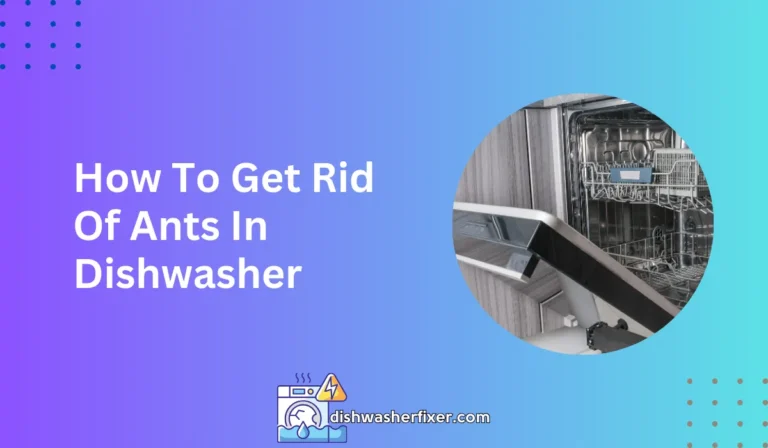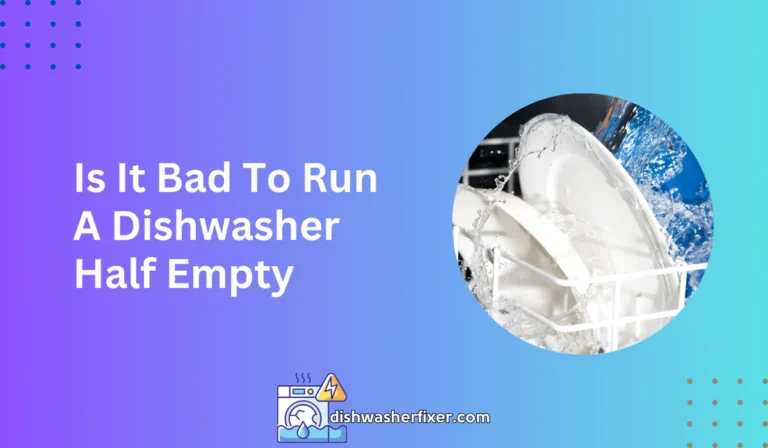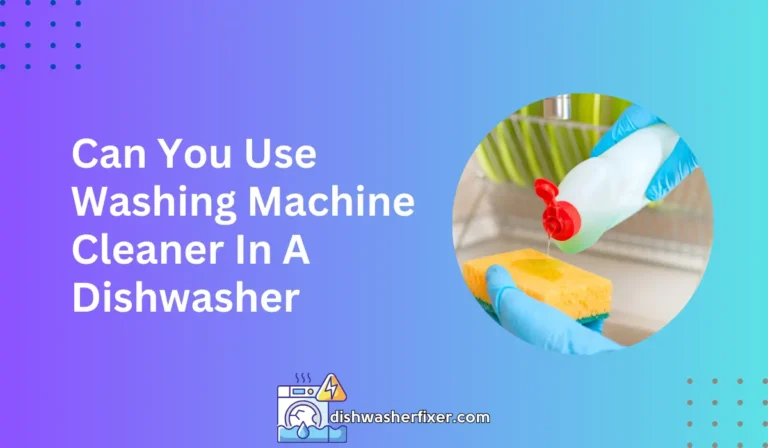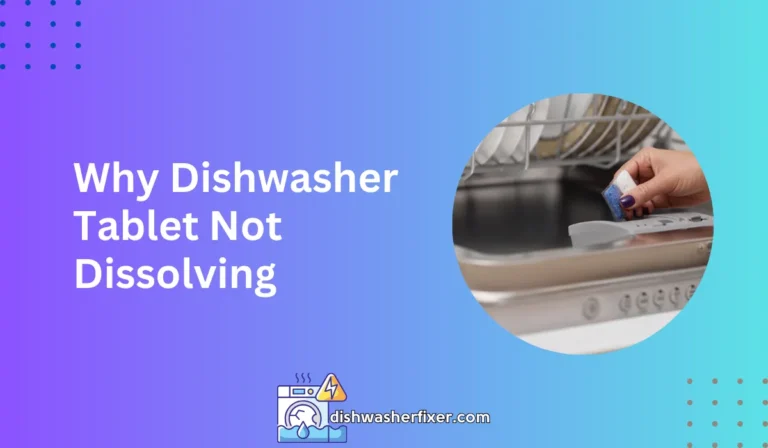Does Garbage Disposal Affect Dishwasher? Essential Insights!
Yes, garbage disposal can affect a dishwasher if they share a drain. If the disposal is clogged or not running properly, it can cause water to back up into the dishwasher, potentially leading to poor drainage or dirty dishes after a cycle.
Garbage Disposal and Dishwasher Connection

Typical Connections Between Appliances
In many homes, the garbage disposal and dishwasher are connected directly to each other. This setup allows the dishwasher to drain through the garbage disposal unit.
When the dishwasher runs, water flows out, passing through the disposal’s chamber before it enters the main drainage pipe.
This is an efficient way to consolidate plumbing and manage kitchen waste, but it does mean that the performance of one appliance can affect the other.
Garbage Disposal’s Role in Kitchen Plumbing
The garbage disposal is a critical component of a kitchen’s plumbing system. Positioned under the sink, it shreds food waste into small pieces, allowing it to pass through the plumbing without causing blockages.
The disposal must be capable of handling the type of waste that comes from both the sink and the dishwasher. A well-functioning disposal is essential for keeping the sink and connected appliances, like the dishwasher, running smoothly.
Dishwasher Drainage System Functionality
The dishwasher drainage system is designed to remove used water and food particles from the appliance after a wash cycle.
The water typically exits the dishwasher, flows through a hose, and into the garbage disposal where any food particles are ground up before entering the drainage system.
This system relies on a clear path through the garbage disposal to function properly. If the disposal is clogged, the dishwasher will not drain as expected.
Impact of Garbage Disposal on Dishwasher Performance
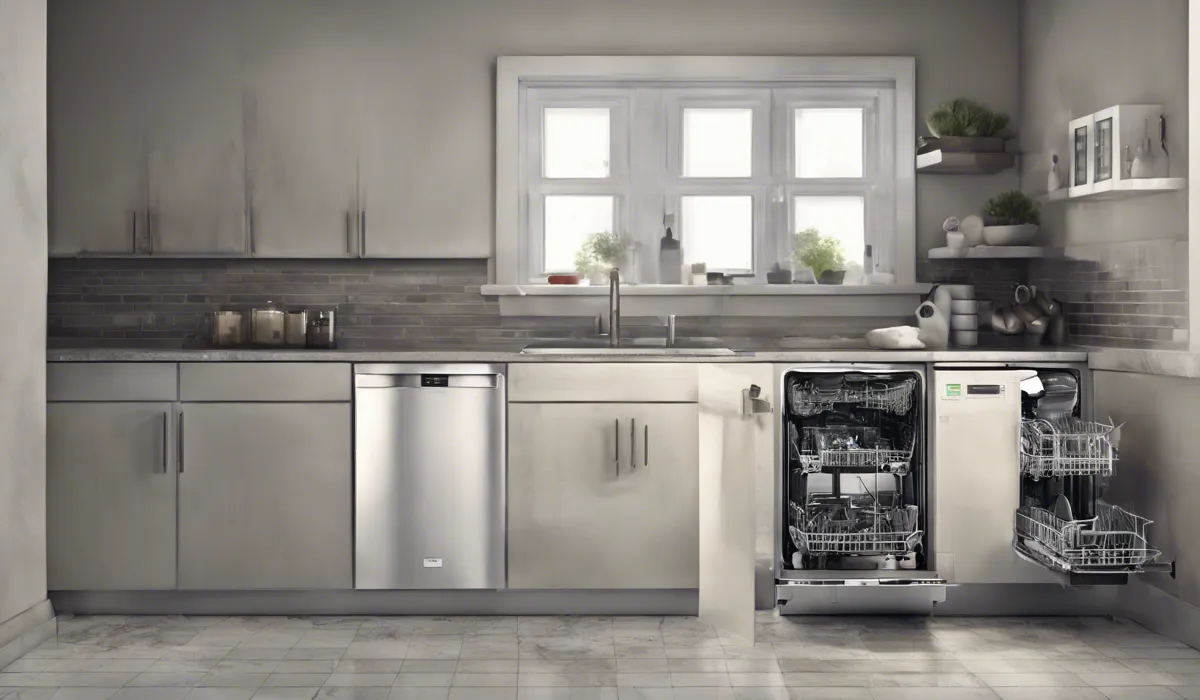
Clog Risks in Shared Drain Lines
When a garbage disposal and dishwasher share a drain line, there is a risk of creating clogs. Large food particles or non-food materials can get stuck in the disposal, preventing water from draining properly.
This situation can lead to water backing up into the dishwasher, which may result in unclean dishes or standing water left after a cycle. Regular inspection of the shared drain line is crucial to prevent these clogs.
Effects of Improper Disposal Use
Improper use of the garbage disposal, such as disposing of materials it’s not designed to handle, can lead to problems with the dishwasher. Hard objects like bones or fibrous materials like celery can jam the disposal blades.
Grease or oil can solidify in the pipes, all of which can impede dishwasher drainage. It is important to understand what can and cannot be processed by the disposal to maintain its functionality and that of the dishwasher.
Water Backup Due to Malfunctioning Disposal
A malfunctioning garbage disposal can directly lead to water backup in the dishwasher. If the disposal is jammed, turned off, or not running effectively, it will not grind up waste, nor will it allow water to pass through to the main drain.
This can cause the dishwasher to fill up with water and potentially spill over onto the kitchen floor. Keeping the disposal in good working order is essential to prevent such backups.
Best Practices for Maintaining Garbage Disposal and Dishwasher Harmony

Regular Maintenance for Garbage Disposals
Regular maintenance of the garbage disposal is key to avoiding negative impacts on the dishwasher.
This includes routine cleaning with mild detergents, sharpening the blades with ice cubes, and flushing the system with water to prevent buildup.
Scheduling professional inspections can also help identify and address issues before they lead to more significant problems with connected appliances like the dishwasher.
Proper Usage Guidelines for Appliances
To prevent interference between the garbage disposal and dishwasher, follow proper usage guidelines.
This includes running the disposal regularly to clear any debris, avoiding overloading it with waste, and ensuring that it is turned off before starting the dishwasher.
Additionally, scrape dishes well before loading them into the dishwasher to minimize the amount of food waste that goes into the disposal.
Troubleshooting Common Interaction Issues
When issues arise between the garbage disposal and dishwasher, troubleshooting can often resolve them quickly. If the dishwasher isn’t draining, check the disposal for clogs or jams.
If the disposal isn’t working, ensure that it is plugged in and the reset button isn’t tripped. For persistent problems, consult a professional plumber who can diagnose and fix the issue, ensuring both your disposal and dishwasher work in harmony.
FAQs About Garbage Disposal Affecting Dishwasher
Can a clogged garbage disposal cause dishwasher problems?
Yes, a clogged garbage disposal can lead to water backing up into the dishwasher, which may result in poor drainage or dishes not being cleaned properly.
Do I need to run my garbage disposal before using the dishwasher?
It is a good practice to run your garbage disposal before starting the dishwasher to ensure that the shared drain is clear, which can prevent drainage issues.
What happens if my garbage disposal is not working properly?
If your garbage disposal isn’t working properly, it can cause water to back up into the dishwasher, potentially leading to ineffective cleaning and drainage problems.
Can installing a dishwasher and garbage disposal on the same drain cause issues?
Installing a dishwasher and a garbage disposal on the same drain can work well, but if the disposal is not maintained, it could lead to blockages that affect the dishwasher’s performance.
What should I do if my dishwasher is affected by the garbage disposal?
If your dishwasher is affected by the garbage disposal, you should clear any clogs in the disposal, make sure it’s running properly, and check for obstructions in the shared drain line.
Final Thoughts
Garbage disposal and dishwasher functionality are interconnected when sharing a drain. A malfunctioning or clogged disposal can impede water flow, resulting in the dishwasher’s inability to drain effectively.
This disruption can lead to water backup and the risk of unclean dishes post-cycle, highlighting the importance of maintaining a clear and functioning disposal system.
